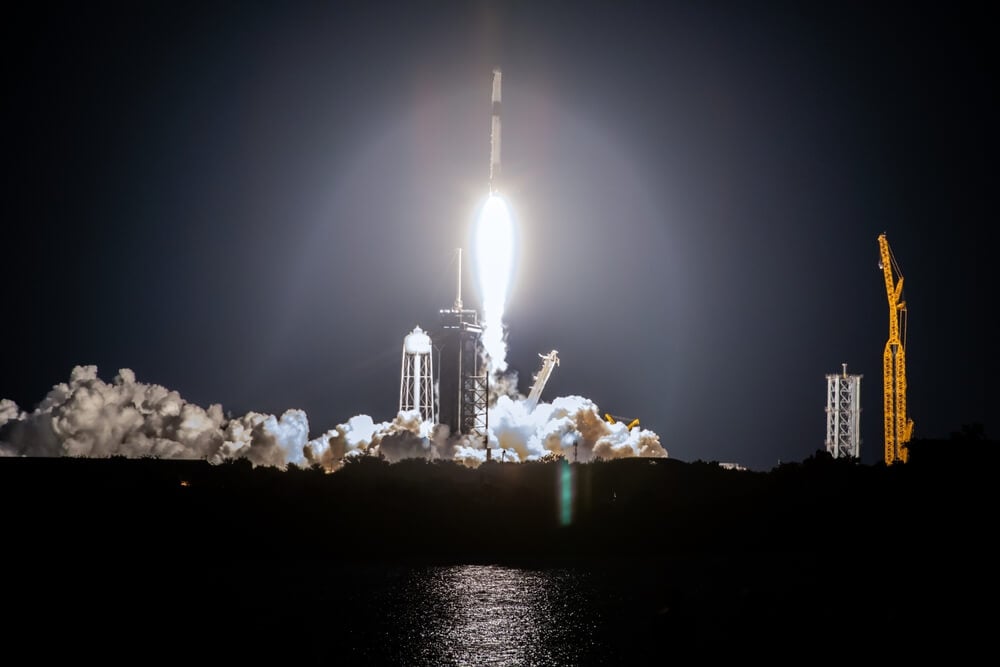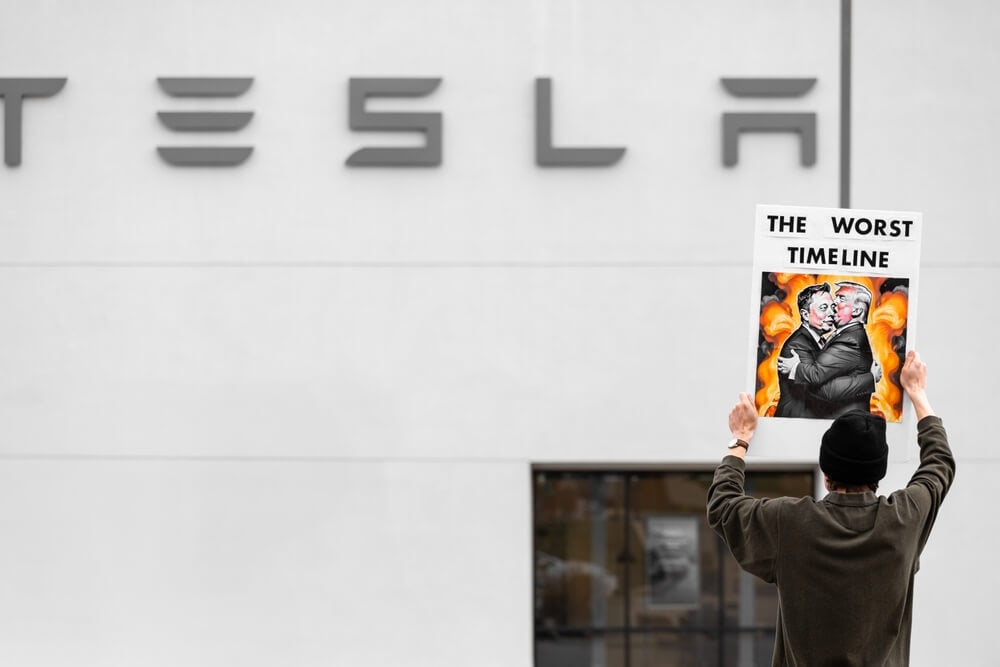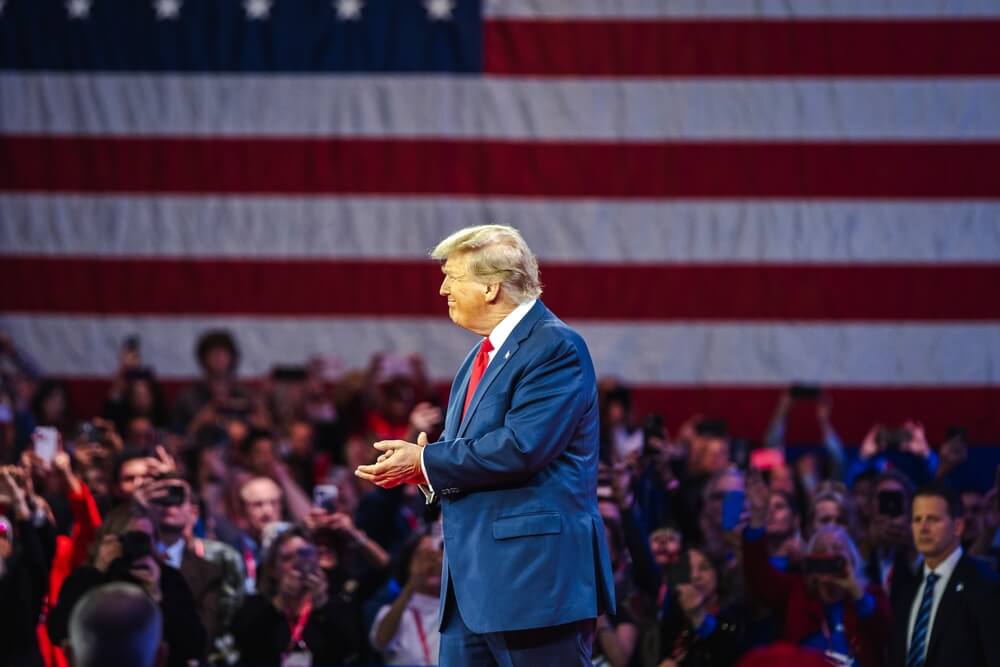In the role of Chairman of the Department of Government Efficiency, or DOGE, Elon Musk visited the White House for several important meetings.
The first time was on 12 February, when he presented a report on the initial savings from a spending review.
The estimates he presented showed that it was possible to save hundreds of billions of dollars each year without jeopardising important programmes. DOGE then took on the task of coordinating the cuts across multiple agencies.
In late April, Musk met again with President Trump in the Oval Office, where he outlined the prospects for ending electric car subsidies and cutting the budget for space exploration.
On these occasions, Tesla and SpaceX were given the status of partners with special attention and convinced the government that they are a model of success in technological investment.
The joint work showed the rising dynamics of the relationship between the political authorities and the technological elite.
One Big, Beautiful Bill
The collaboration began in 2024, when Musk, as the richest American, financially supported the Trump campaign with over 290 million dollars via the America PAC.
He actively used Dogecoin in the election campaign and promoted it on his platform X. He published ads, analyses, and proposals to promote growth through investments in clean energy. Without his help, Musk said, Trump would probably lose the election.
At the time, it seemed their synergy was unprecedented. However, the defence of this synergy failed when Congress passed a package of budget proposals in the House of Representatives known as the One Big Beautiful Bill.
The proposal will save the US administration millions, but at the same time it will remove important incentives for Tesla
The One Big Beautiful Bill provided for an increase in spending on the military and infrastructure while cancelling subsidies for electric vehicles.
This proposal will save the US administration millions, but at the same time it will remove important incentives for Tesla.
When the House of Representatives forwarded the text to the Senate, Musk posted on X that the package was "a disgusting abomination" and that the bill will drive the economy into recession.
He accused Trump of not having submitted the text to him for review before the vote.
It was the first time he had criticised the president directly and within the administration, of which he is a member.
Trump did not hesitate for a second. He announced that he would cancel all federal contracts with companies controlled by Musk, in particular Tesla and SpaceX.
Cancelling the subsidies
The consequence of this decision was an immediate decline in the value of Tesla shares by over 10%.
Investors were caught off guard, as the company had just finalised the construction of new battery plants and was planning to expand production outside the US.
SpaceX had contracts worth more than 22 billion dollars with NASA and the Pentagon to provide services for astronaut pilots and the development of rocket systems.
The Pentagon immediately informed Congress that it would either insist on fulfilling the contract or face significant consequences for its national space programme.
SpaceX had already committed to taking part in the mission to bring back humans to the Moon and prepare for new flights to Mars.
However, Trump's threat jeopardises this schedule. NASA warned that the cancelled missions could lead to a minimum pause of several months or longer.

SpaceX had committed to taking part in the mission to bring back humans to the Moon. However, Trump's threat jeopardises this schedule
Debates have begun within the Republican Party in Congress. Some of the senators believe that cancelling the subsidies for Tesla and ending its collaboration with SpaceX is a mistake because it jeopardises the USA's technological supremacy.
Others believe that the USA is living beyond its means and that it is necessary to reduce the deficit immediately.
The question was whether they would opt for budgetary discipline or support for the technological giants whose development will ensure future competitiveness.
Some senators pointed out that it is necessary to maintain subsidies for clean energy to compete with China and Europe, while the other part insisted on cancelling all incentives as soon as possible.
Changing the methodology
The Democratic Party saw an opportunity to criticise Republicans as subservient to the interests of certain billionaires.
They proposed a new bill in the Senate that would threaten restrictions for funding election campaigns by big donors. The aim was to limit the power of individuals like Musk who can influence the course of political processes.
Republicans met these proposals with resistance, arguing that they would discourage all innovators. The paradox was that many Democrats appreciated the initiatives Musk presented through DOGE while criticising his anti-budget rhetoric.
The conflict over the accuracy of the figures casts further doubts on the credibility of DOGE
Musk stated that the savings gained through DOGE totalled $160 billion, but independent auditors determined that the actual amount was about $25 billion less.
The conflict over the accuracy of these figures casts further doubt on the credibility of the organisation he led.
There was debate within the administration about whether a person who could not vouch for the accuracy of the financial estimates should be part of the working group preparing the national budget.
Musk defended his data by pointing out that any paraphrasing of sources can be misinterpreted. Nevertheless, some members of the DOGE team have filed a motion to change the methodology for calculating spending.
Spoilt billionaire vs. fake patriot
In the meantime, external partners have been monitoring the situation closely. China has taken the opportunity to offer joint projects with the European Union in the development of satellites to monitor climate change.
European space agency has announced increased investment in autopilot satellites to reduce dependence on US infrastructure. India has started talks with Russia on the joint development of rocket engines.
This has sent a clear message that in the event of a slump in the US space industry, there is the possibility of diverting investment to other centres of power.
Social networks also brought the news to the surface. Musk posted almost daily messages calling Trump a fake patriot and accusing him of hiding data, while Trump hit back on the Truth Social platform by calling Musk a spoilt billionaire and claiming his influence was bad for America.
Online exchanges swayed voters and sparked debates within the Republican Party and among younger voters
In one of the most heated exchanges, Musk wrote that Trump doesn't understand basic economic concepts and is leading the country to ruin.
Trump countered that Musk wouldn't see the benefits of his money because the country would be in chaos if he hadn't intervened when he did.
At times when tensions were at their peak, they sent each other GIFs, short videos and memes, further fuelling tensions.
Such online exchanges not only swayed voters but also sparked debates within the Republican Party and among younger voters who follow X and Truth Social.
The boundary between private interests and public policy
The conflict between the Trump administration and Musk has led to a strengthening of partnerships outside the USA.
European countries have proposed the creation of a joint fund for space exploration to compensate for the possible cancellation of aid from Washington.
Japan has increased subsidies for its own battery manufacturers and expanded co-operation with Australia on lithium mining.
All of this suggests that the conflict erupted at a crucial time when global supply chains were already under pressure.
 At the heart of the problem is the question of the boundary between private interests and public policy
At the heart of the problem is the question of the boundary between private interests and public policy
At the heart of the problem is the question of the boundary between private interests and public policy.
Musk thought that investing in innovation would be more profitable in the long run and was the right path for the US.
Trump, on the other hand, assessed that current borrowing was dangerous and that taxpayers would have to bear the consequences if the state continued to spend money without debt management. This division was not just about complex economic analyses but also about the philosophy of social development.
Three ways forward
There are still three possible ways to develop the situation. The first means a complete termination of the co-operation.
In this case, Tesla would lose subsidies in the USA and would be forced to quickly find alternative markets, such as India and Latin America. SpaceX would then have to rely on private investors or international partners.
Such a scenario could lead to the formation of new regional alliances in the field of space technology and research, which would significantly reduce the supremacy of the USA.
Another option is to freeze the treaty with behind-the-scenes negotiations. This model would temporarily preserve partnerships like the Moon missions, but it would impose stricter conditions.
Musk would have to tone down his criticism of the administration and make certain compromises on transparency
Musk would have to tone down his criticism of the administration and make certain compromises on transparency.
In this case, the extent of the private sector's ability to influence government decisions would be more clearly defined. The deal could allow Tesla to regain the subsidies, but it would have to agree to stricter reporting on spending.
The third way is reconciliation without a return to the previous level of co-operation.
In this case, the boundaries of mutual action would be defined. Musk would still have the freedom to propose innovations, but he would not have the right to publicly criticise them, which would jeopardise the budget preparation process.
Trump, on the other hand, would have to admit that DOGE has elicited significant numbers from the federal system and is a necessary partner when it comes to efficiency.
A compromise here would primarily be a matter of personal diplomacy and pointing out the strategic advantages of co-operation.
It is difficult to predict which option will prevail. In either scenario, the US will need to restructure its relationship with the large tech companies and individuals who support their campaigns.
The question is whether it will be permissible in the future for the president or the administration to completely cut off access to funded contracts if an individual publishes criticism. This may make the political arena vulnerable to retaliation.
The conflict that changes the course of history
In the coming months, it will be critical to follow the Senate's decisions on the One Big Beautiful Bill package, as the final vote will set many courses.
If the Senate retains the proposals to eliminate subsidies for electric vehicles and borrowing for military purposes, it will become clear that Trump is willing to risk technological competitiveness in favour of his economic philosophy.
In this case, Musk would probably leave the political arena for good and devote himself to private projects.
 The US needs to find a new model of co-operation between government policy and capital
The US needs to find a new model of co-operation between government policy and capital
On the other hand, if the Senate resolves some points of contention, such as maintaining subsidies for clean technologies, this could herald a new era in which it is possible to reconcile budgetary discipline with investment in innovation.
This would restore confidence within the administration and open the door for further co-operation with the DOGE team. In any case, this outcome will shape the trajectories of US space policy and clean energy.
Finally, the conflict between Trump and Musk is already changing the course of history.
Private companies involved in space exploration and clean technologies will now have to rethink their timelines and project plans.
Globally, partners, such as China, Europe and India are looking for opportunities to take over the roles that US companies have played in many key projects.
Faced with such a prospect, the US needs to find a new model of co-operation between government policy and capital.
This will not be easy, as the ideological, economic and political constraints are all present at the same time.
What is certain is that the rift between Trump and Musk is a sign that the world is entering a new era in which the boundaries between private and public no longer exist as firmly as once imagined.